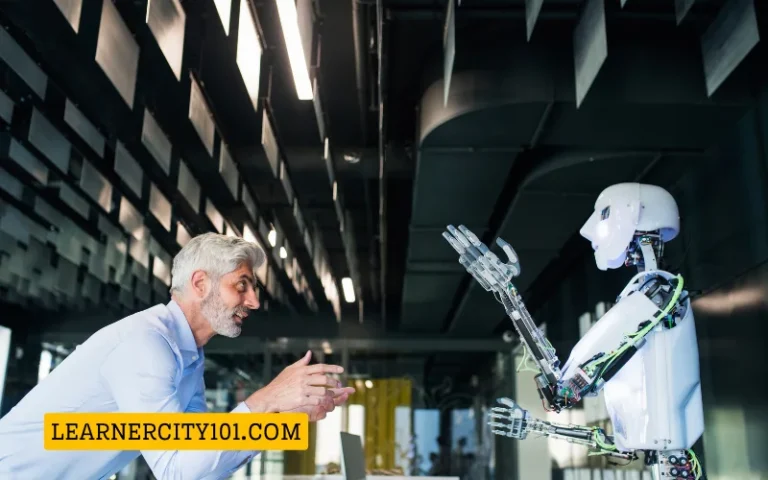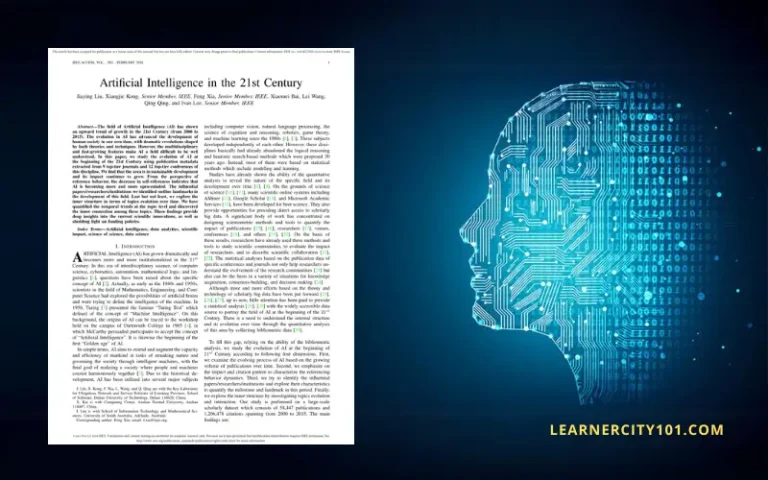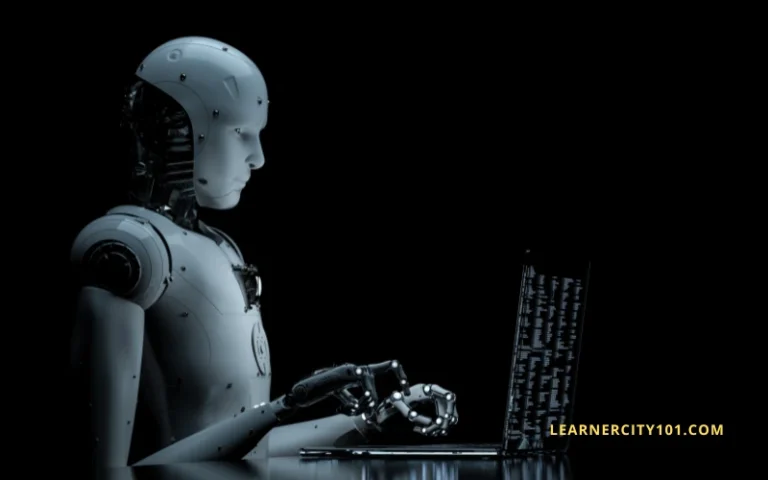Can AI Writers Generate Product Descriptions?
Can AI writers generate product descriptions? This question is cool to think about. Nowadays, computers can do amazing things. They can even write about stuff like toys, phones, or sneakers.
But, can they do it well? Let’s look at how these smart computer writers work. We’ll see if they can make product descriptions sound good and correct. We will also explore if they can write in a way that makes people want to buy things. Plus, we’ll check if they know what’s important to say about products. We’ll ask if their writing is good for websites to appear in searches.
Then, we can think about if they’re good at explaining complicated stuff. Finally, we’ll see how businesses use these computer writers and if their work is excellent. Also, we’ll find out if they can sound like a real person from a company. Lastly, we will ask, will they take over the writing jobs of people?
In this article, you will get all the answers covered. Let’s dive into the detail.
Want to learn more about Artificial intelligence:
How accurate are AI-generated product descriptions?
AI-generated product descriptions are pretty smart but not perfect. Imagine a robot that looks at a toy and then tells you what the toy does. It uses a big brain full of information to write about the toy. Sometimes, it knows a lot and writes descriptions that are spot on.

It’s like it can almost guess exactly what you want to know! But other times, it might miss a few details or get something wrong. It’s kind of like when you’re doing homework and mixing up facts. No big deal, everyone makes mistakes! So, these AI descriptions are mostly correct, but you should still double-check the details.
It’s always good to have a human look too, just in case. That way, you make sure you know all about what you’re buying. After all, nobody likes surprises when expecting a cool new toy or gadget!
Can AI writers create unique and engaging product descriptions?
Sure, AI writers can make product descriptions that are special and fun to read. They use a big computer brain to think of cool words and put them together in a new way. AI doesn’t get tired like people, so it can write lots of them fast. But sometimes, it needs a human to check its work.
That’s because the AI might miss what makes a game or toy really exciting to someone like you. AI is like a super-smart helper, giving ideas to people who sell stuff. It helps them explain why a skateboard is super cool or a video game is a blast.
This way, you get to know why you might love something before you decide to get it. AI doesn’t replace humans, but it’s a great teammate when creating descriptions that make you want to learn more about all sorts of products.
How do AI writers know what to include in product descriptions?
AI writers are like smart robots that help write things. They don’t know stuff on their own. People teach them by giving them lots of information. This info could be about all sorts of products. When it’s time to write, the AI remembers this info. It’s like how you remember answers for a test. But AI writers are good at remembering many things.
To write a product description, the AI thinks about the info it learned. It knows what facts are cool or important for you to know. Like, if it’s a toy, the AI will tell you what makes it fun. If it’s a sweater, the AI might mention the color or how warm it is.
The AI tries to include things that make you interested. It’s always careful to make sure the description is easy to read and understand. That way, you know exactly what the product is all about. And just like that, AI helps people learn about different things they might want to buy!
Are AI-generated descriptions SEO-friendly?
AI-generated descriptions can be good for SEO if done right. SEO stands for “Search Engine Optimization.” It helps websites get noticed on the internet, like waving a big sign to attract people. When you write about something online, like a cool game or a new song, you want others to find it easily. That’s where SEO comes in. It’s like a secret code that tells search engines, “Hey, look over here!”
AI, which is a short way of saying “Artificial Intelligence,” can create descriptions for websites. Think of AI as a smart robot that knows how to write. It can look at a picture or a product and write what it’s about. If the AI is really good, it writes things that include keywords. Keywords are special words that people search for. Having the right keywords means more people might click on the website.
But the AI has to be smart and understand what people like. If the AI’s descriptions are weird or don’t make sense, it won’t help. Good AI will write stuff that’s easy and fun to read. This way, when you search for cool things, the right descriptions help you find just what you’re looking for.
Can AI writers handle technical products?
AI writers are like smart robots that write for us. They can handle technical stuff too. Think of a complicated gadget, like a new phone. You need to know how it works. AI can explain this by writing simple instructions. It can look at all the tech details. Then it makes them easy to understand.

But AI writers need good information first. People program AI to know lots about technical products. With this, AI can help us learn about these products. It’s like having a smart friend who knows a lot. This friend can break down hard topics into easy pieces. That way, you can understand and use your gadget better. AI writers are getting better at this. But they still are not perfect.
They can mix up words or not make sense sometimes. So, it’s good to check what they write. Or ask a real person too if you’re confused. AI writers are tools we use to learn and understand more. They can make learning about technical products fun and simple!
How do companies implement AI writing tools for product descriptions?
Companies are using smart computer programs, kind of like robots, to write about the stuff they sell. Imagine you have a robot that’s good at playing with words. Companies tell these robot programs what their products are about. The programs then use that info to write cool and interesting facts about the products.
It’s like teaching the robot to be a mini-expert on each thing they sell. They make sure the robot knows the right words to use. This makes everything faster. Instead of a person writing about a hundred toys, the robot can do it super quickly.
After the robot writes it, a person checks to make sure it sounds good. If it does, they put it online for customers to read. This way, when you look up a toy, you get to read the perfect description. It helps companies sell more and helps customers choose better.
How can businesses ensure the quality of AI-generated product descriptions?
Businesses can make sure their AI descriptions are really good. First, they teach the AI about their products well. This is like how you study for a test more you know, the better you do. Then, someone checks the AI’s work, just like a teacher looks at homework. The person tells the AI if it did something wrong so it can learn. They also make sure the AI doesn’t say silly things that don’t make sense.
The AI needs to talk about things that are true and important about the products. It’s also good if the AI uses easy words so that customers can understand everything well. Finally, the AI gets updated to know the newest stuff. It’s like when you learn about new things in school. Always learning makes the AI keep getting better at writing. So, businesses can have great product descriptions if they teach, check, and update their AI. It’s a team effort between people and the AI.
Can AI writing tools be customized for a brand’s voice and tone?
Sure, AI writing tools can learn to sound like a brand. Think of it like teaching a parrot to talk. You tell the parrot (or AI) what your brand sounds like. It’s like when your friend always says “awesome sauce” and you start saying it too. The AI picks up these patterns. It notices words, style, and even jokes that a brand uses. Then, it’s like the AI puts on a brand costume and writes like it’s part of the team.
So, when someone reads something the AI wrote, it feels familiar. It’s like hearing your friend’s catchphrase. It makes you think, “Yep, that’s something they would say!” So if a brand is fun and cool, the AI sounds fun and cool. If a brand is serious and smart, the AI acts serious and smart. It’s a pretty neat trick these tools can do! They get better at it the more they practice, just like you get better at video games.
Will AI writers replace human copywriters for product descriptions?
AI writers are smart computer programs that can write words. They are getting better at writing product descriptions. These descriptions tell you about things you might want to buy. Some people think AI might replace human copywriters. This means computers could do the job instead of people. AI can work fast and never gets tired.
It can write a lot of descriptions quickly. But AI doesn’t understand things the way humans do. It doesn’t know feelings or have ideas. Human copywriters are good at being creative. They make descriptions interesting and fun. They know what words can make you want to buy something. AI might help humans by doing some writing tasks. But it probably won’t replace them completely.
Human touch is special in writing. It connects with us in ways AI can’t yet. So, while AI can help, human copywriters will still be important. They will work together, each doing what they are best at. This way, we get to read great product descriptions that inform and entertain us.
Conclusion
In conclusion, AI writers are helpful tools. They create product descriptions using learned info. Sometimes they need people to double-check for mistakes. AI can make unique and interesting descriptions. Yet, they may not understand why a product is exciting. They use key details to catch your interest.
For SEO, AI uses keywords to help people find products. AI can simply explain technical products. Companies guide AIs to write fast and accurately. People then check the AI’s work for quality. AI can sound like a brand’s unique voice. But AI won’t replace human writers. People still add creativity that AI doesn’t have. So, AI and humans work together to describe products well.







